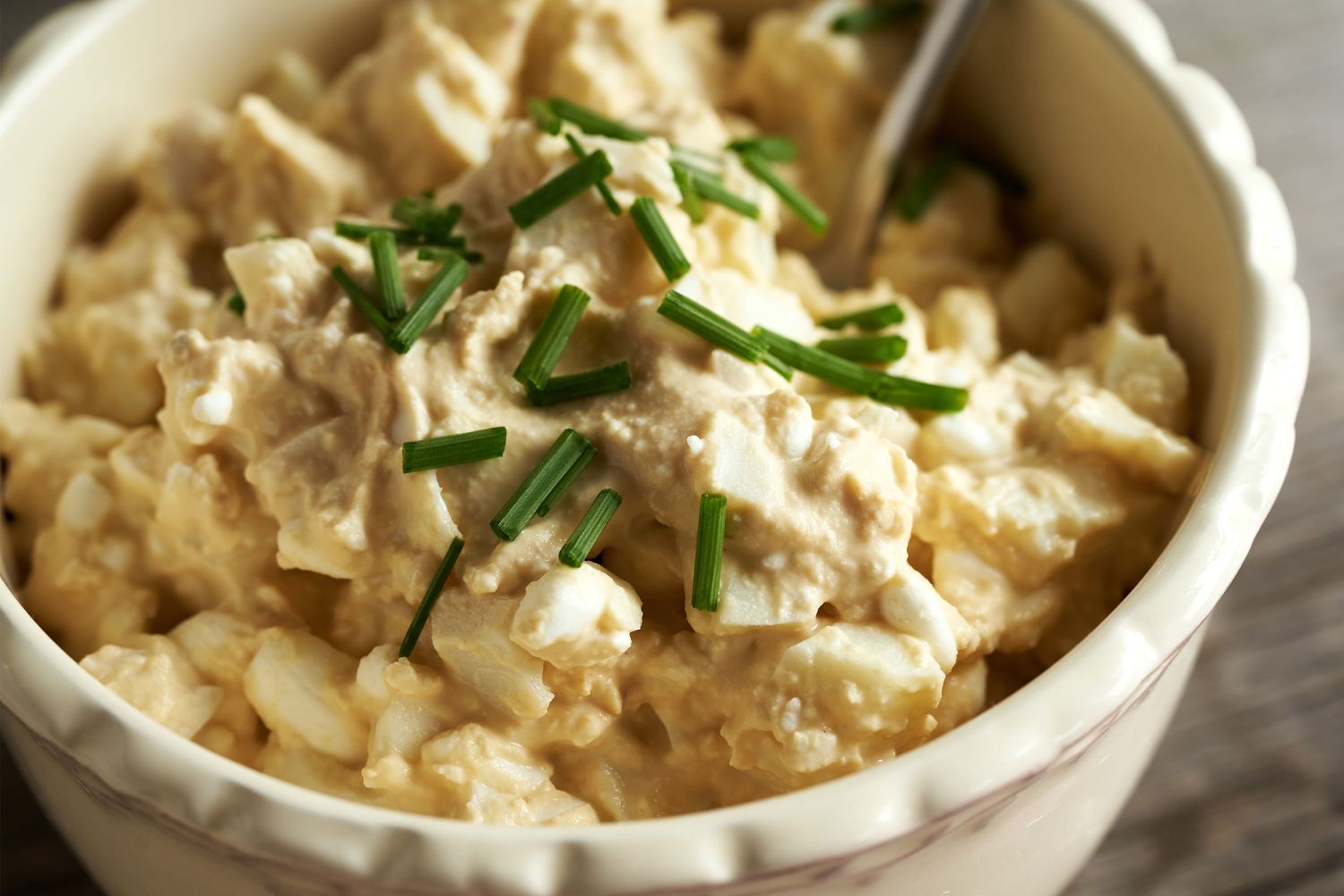Käse- und Senf-Diät: Ernährungswissenschaftlerinnen bewerten Vor- und Nachteile

Wenn Sie Zeit in sozialen Medien verbringen, werden Sie wahrscheinlich mit dem neuesten viralen Wellness- oder Workout-Trend bombardiert. Von Schreibtisch-Laufbändern, die behaupten, es Ihnen leichter zu machen, Ihre Schritte zu erledigen, während Sie arbeiten, bis hin zu Influencern, die das neueste Greens-Pulver bewerben, verspricht jeder Trend, Ihre allgemeine Gesundheit und Ihr Wohlbefinden zu verbessern. Aber der neueste virale Trend könnte Sie ratlos zurücklassen.
Allgemein bekannt als die 'Käse-Sahne-Mustard-Diät', behauptet die TikTok-Influencerin Tiffany Magee, dass ihr tägliches Mittagessen, bestehend aus der Kombination von Käse-Sahne, einer Vielzahl von rohem Gemüse und Wurst, ihr geholfen hat, 80 Pfund zu verlieren. Und die App hat dies im Sturm erobert. Der Hashtag 'KäseSahneMustard' hat über 9 Millionen Aufrufe und wächst weiterhin, mit Tausenden von Benutzern, die ihr tägliches Mittagessen mit den gleichen Zutaten posten.
Im Gegensatz zu anderen Diättrends erfordert dieser keine Säfte, Zerkleinerung oder spezielle Geräte, was es unglaublich einfach und leicht nachzuahmen macht. Es ist einfach ein Teller mit einer Hühner-Apfelwurst und rohem oder ungekochtem Gemüse wie Karotten, Rosenkohl, Palmherzen, Broccoli und Spargel, den man in Käse-Sa
This meal is also very low in carbohydrates and might not feel sustainable long-term. If you need food variety, consuming other high protein options such as chicken, turkey, fish, tofu, and beans or legumes with other types of veggies can provide the same benefits without you getting tired of what you’re eating.
And because the meal is heavily reliant on raw vegetables, the high fiber content can leave some people with digestion issues that can lead to gas and bloating. Individuals with thyroid issues, such as hypothyroidism or an underactive thyroid, may notice a change in their thyroid function while consuming large amounts of raw cruciferous vegetables, says Danielle Crumble Smith, RDN with Top Nutrition Coaching.
“In those cases, I would recommend cooking [vegetables] prior to consumption, as cooking can help reduce the goitrogenic effect,” says Crumble Smith. ”Additionally, it's essential to maintain an adequate intake of iodine in the diet, as iodine is essential for thyroid hormone synthesis.”
Good dietary sources of iodine include iodized salt, seafood, dairy products, and certain seaweeds, she adds.
When it comes to getting health advice from social media, experts agree to proceed with caution. “If it sounds too good to be true, it probably is not reliable,” says Coffield. “If the trend seems safe and appealing to you, then try it. And, if it sounds dangerous, go with your gut and don’t try it.” It's also wise to consult with a healthcare professional to see if a shift in your lifestyle is appropriate.
While building a daily plate of cottage cheese, mustard, and veggies might work for one influencer, it doesn’t mean it will work for you. For a balanced and healthy plate, Kaminski recommends getting in at least three of the four major food groups — proteins, starches, healthy fats, and fruits and vegetables — at each meal. This looks like 30 grams or roughly 4-6 ounces of protein, half a plate of fibrous fruit and vegetables, and the rest filled with a starch (like sweet potatoes )or healthy fat (avocado or nuts).
“This balanced plate provides a healthy combination of foods that keep you full, meet your daily dietary needs, and don't spike blood sugars,” says Kaminski. Consistent blood sugars mean avoiding those energy crashes shortly after consuming a meal.
Balance truly is key, and consuming a diet filled with a variety of fresh ingredients is the key to overall health. If you see any recommendations to cut out an entire food group, think twice. Variety provides your body with the nutrients needed to function optimally.




